The Washington, D.C., area has produced its share of guitar whizzes, including Roy Buchanan, Danny Gatton, Jeff Baxter, and Steuart Smith. But perhaps the best known is Roy Clark, who died at his Tulsa, Oklahoma, home on Thursday, November 15, at age 85.
The often-smiling, nattily attired Clark differed from those others by being of a generation that combined virtuosity with a sincere desire to entertain. Jaw-dropping pickers like Glen Campbell, Les Paul, Jerry Reed, and Clark came out of a school of performers that felt completely comfortable injecting humor into their acts and even their playing. That may be why they ended up in the most popular entertainment medium of their age: television.
Multiple generations of guitarists had a “come-to-Jesus moment" when, flipping their TV dials, they stumbled on Hee Haw. It is hard to describe the disconnect of watching Clark mugging away while ripping a killer solo on “Bill Bailey," or playing a down and dirty slow blues instrumental as cartoon lady pigs strut back and forth across the screen, swinging their pearl necklaces—except to say that once you heard him play, the baggy-pants humor fell away and you focused on his magical command of the 6-string.
“How many guitar players started with a Roy Clark guitar method book?" says Brad Paisley. “How many guitars were sold to people wanting to play because of him? I practiced his style, then practiced making his facial expressions. He was a hero."
Clark influenced and was appreciated by country icons like Paisley, Keith Urban, Charlie Daniels, and Ray Benson, but his influence went beyond Nashville-style pickers. “The reason I play guitar is because of Hee Haw and Roy Clark," says Tele shredder John 5, who currently plays with Rob Zombie. “I started watching in 1976 and I'll never forget Roy Clark playing all the different instruments. I have the style I do because of Roy Clark mixing country and rock."
Roy Linwood Clark was born on April 15, 1933, in Meherrin, Virginia, but raised in the District of Columbia. Clark's father played in a square dance band and regularly took him to concerts by the National Symphony Orchestra and military bands. “I was subjected to different kinds of music before I ever played," said Clark. “Dad said, 'Never turn your ear off to music until your heart hears it—because then you might hear something you like.'"
He began by playing banjo and mandolin, and received his first guitar as a Christmas gift at age 14. It was a Sears Silvertone. By his mid-teens, Clark was playing bars and dives on Friday and Saturday nights. This soon escalated to every night, causing him to skip school and ultimately drop out.
After winning a national banjo competition in 1950, Clark was invited to perform at the Grand Ole Opry, which led to touring and shows with Hank Williams, Red Foley, and Ernest Tubb. Back in D.C., he would play not only country, but also jazz, pop, and rock 'n' roll, with both white and black bands. In 1954, he joined Jimmy Dean and the Texas Wildcats, appearing in clubs as well as on radio and TV, until Dean fired him for being late too often. There were apparently no hard feelings, because Dean later gave Clark national exposure when Dean guest-hosted The Tonight Show.
The guitarist honed his rock 'n' roll chops as a member of Wanda Jackson's band in Las Vegas. He later returned to Vegas as a headliner and recording star after his twangy 1962 instrumental debut album, The Lightning Fingers of Roy Clark, which was followed by his first vocal hit, “The Tips of My Fingers." That song reached No. 10 on Billboard's country chart and crossed over to pop radio in 1963.
Clark's career-building TV appearances on The Tonight Show and American Bandstand showcased his easygoing attitude and rural sense of humor. “Humor is a blessing to me," he would say. “My earliest recollections are of looking at something and seeing the lighter side."
Through the 1960s, Clark recorded 10 albums, toured constantly, and appeared on various TV variety shows. Then came Hee Haw, which was billed as a countrified Rowan & Martin's Laugh-In with music. Premiering in 1969, it co-starred Clark and Buck Owens and was an immediate hit. When CBS canceled the show after two-and-a-half years, it segued into syndication until 1992. “I long ago realized it is not a figure of speech when people come up to me and say they grew up watching me since they were 'that big,'" Clark recalled.
Roy Clark's joyful nature is on display as he plays one of his signature Heritage semi-hollowbody guitars onstage at the Grand Ole Opry. He became a member in 1987. Photo courtesy of GSPI, Inc.
Clark had many successful recordings over the years, with 24 Top 40 country hits, including eight top 10s. In 1982, he won a Grammy (Best Country Instrumental Performance) for “Alabama Jubilee." It was his eighth Grammy nomination. The self-described “hillbilly singer" was also deemed worthy of a star on the Hollywood Walk of Fame, the Academy of Country Music's Pioneer Award, and membership in the Gibson Hall of Fame. Clark was as comfortable playing Vegas or Carnegie Hall or the Grand Ole Opry. The latter inducted him as a member in 1987, and he became part of the Country Music Hall of Fame in 2009.
In 1974, Clark moved to Tulsa with his wife, Barbara. The couple was married 61 years at the time of his death. An elementary school in Tulsa was named in Clark's honor, and he was actively involved with its students. In 1983, he opened the Roy Clark Celebrity Theatre in Branson, Missouri, and held court there through the '90s.
Clark was known almost as much for his friendly spirit and generosity as his musical ability. He received the 1999 Minnie Pearl Humanitarian of the Year Award. In October 2000, he was inducted into the Oklahoma Music Hall of Fame. And in 2010, Brad Paisley attested to Clark's generosity on Twitter, “When the Nashville floods wiped out most of my guitars, Roy heard about it, showed up at a show, and gave me one of his."
Clark's stylistic diversity was always striking. He was famed for his high-speed picking decades before the term “shredder" was coined, and was an early adopter of the vibrato bar. He played Telecasters, Jaguars, Les Pauls, and other solidbodies, but was best known for employing semi-hollowbody guitars during the height of his visibility, including a Heritage Roy Clark model. In 1979, any guitarist who merely thought of him as “that hillbilly from Hee Haw" got shaken up when Clark released Makin' Music with Texas blues legend Clarence “Gatemouth" Brown. That swinging horn-fueled festival showed country and blues to be closer than some might think, while 1993's Roy Clark & Joe Pass Play Hank Williams proved definitively that Clark could hang with anybody.
Although he enjoyed television success, had an acting career, and sold many records, for Roy Clark the looseness of live entertainment was what it was all about. “Soon as you hit the edge of the stage and see people smiling and know they're there to hear you, it's time to have fun," he said. “It's not about let's do it correct, but let's do it right."
Roy Clark wields a Fender Jaguar with casual intensity in this late-1950s performance from TV's The Jimmy Dean Show. Dig the whammy-bar antics, the zinging strings slides, and a little bit of the old soft-shoe.


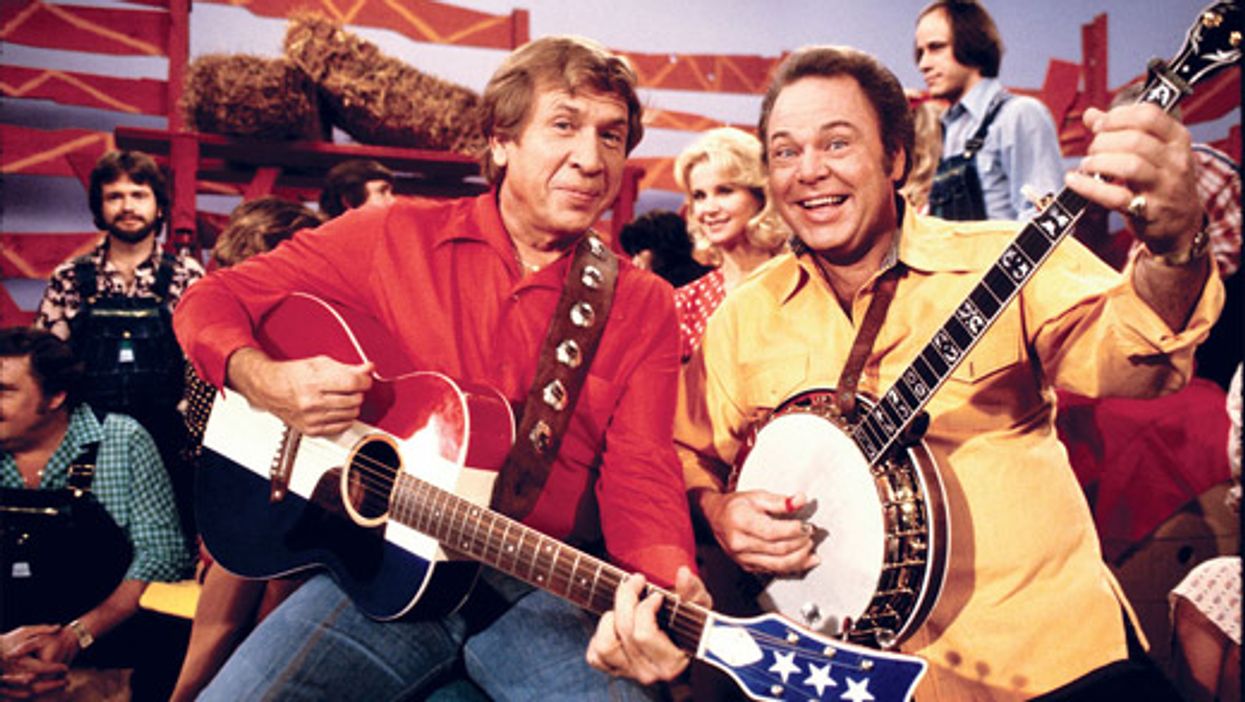

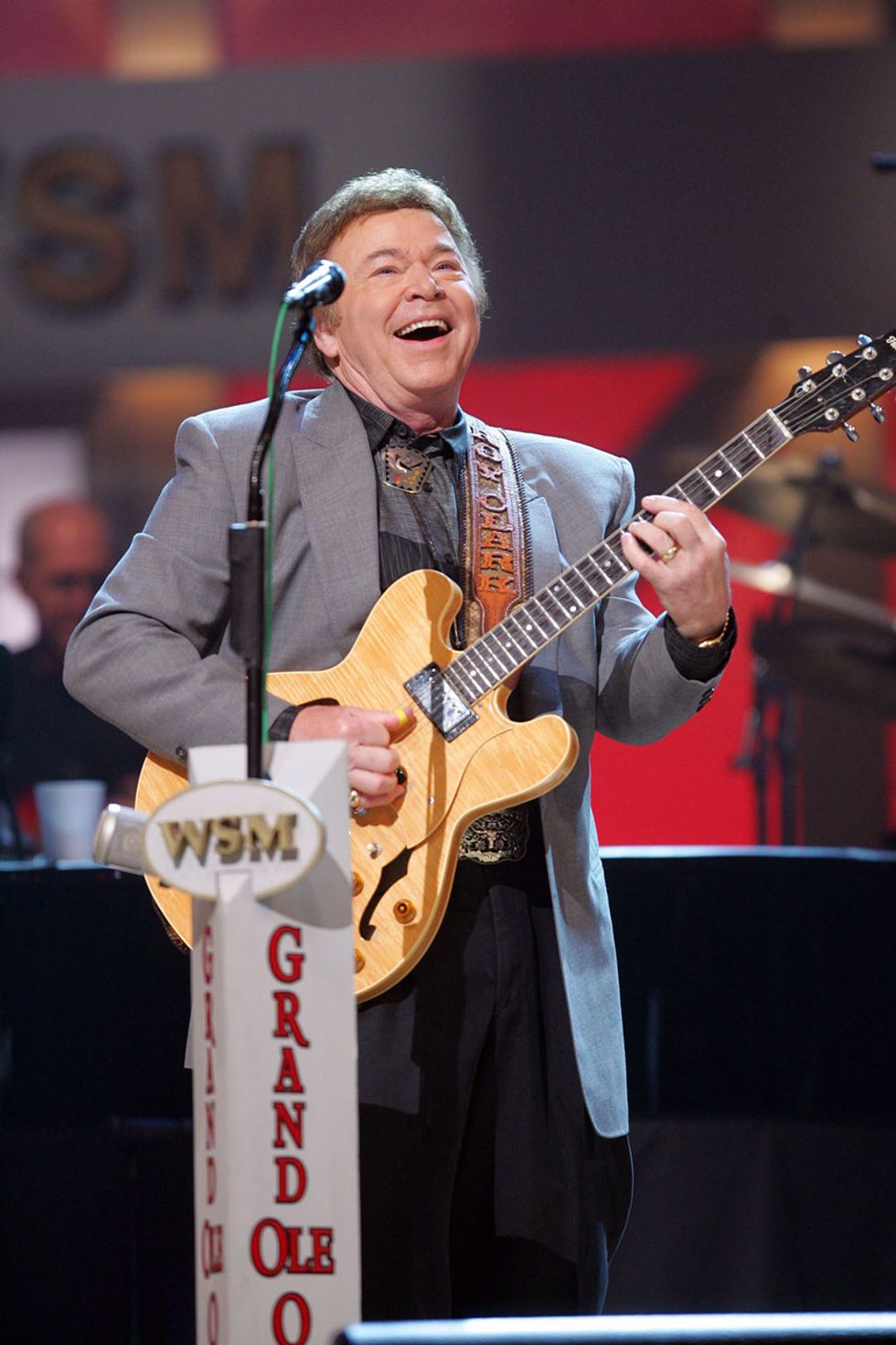








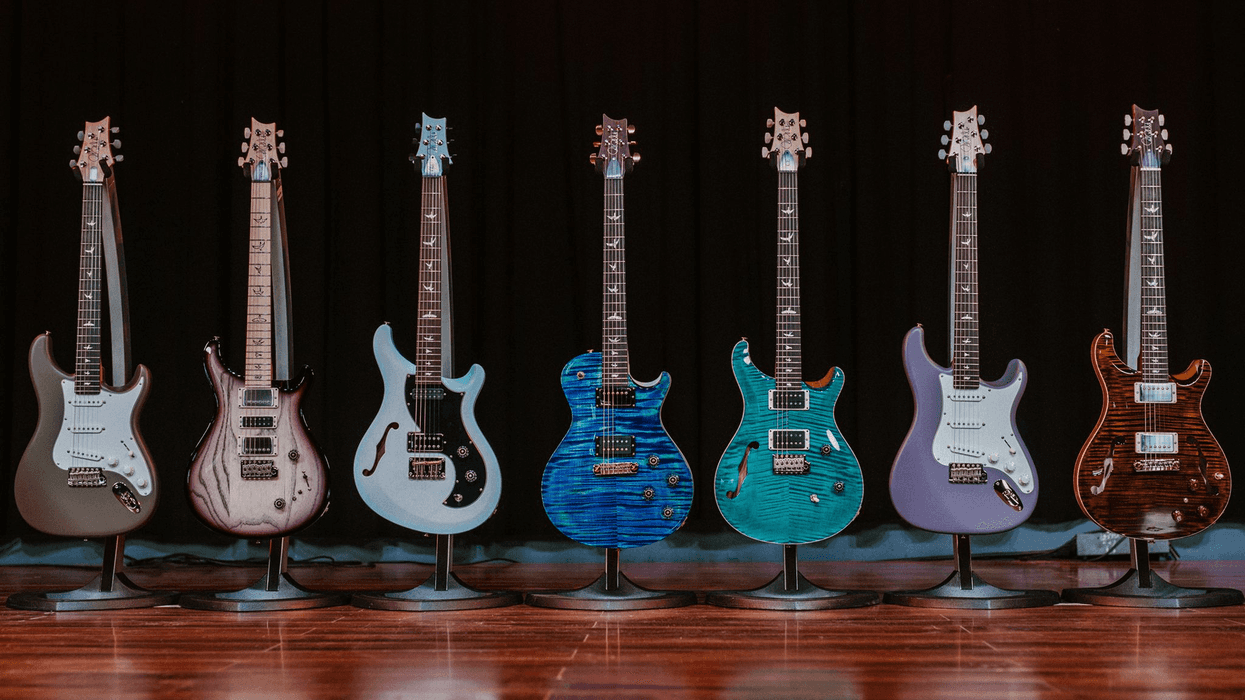

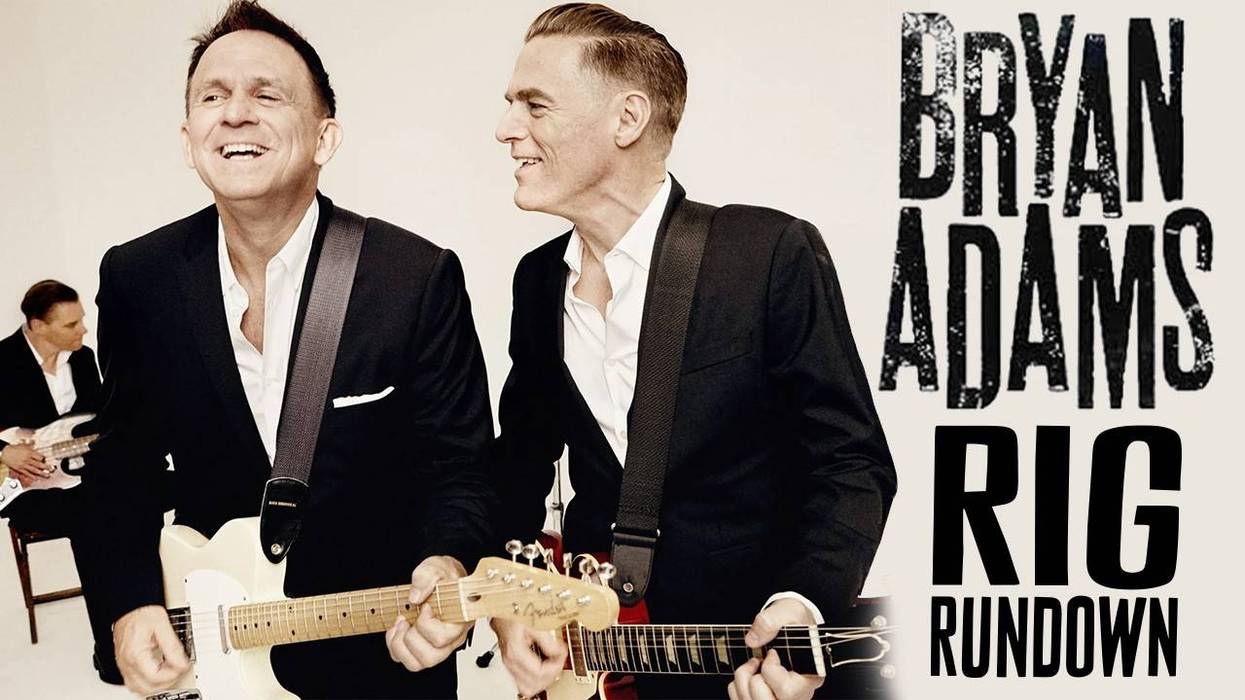
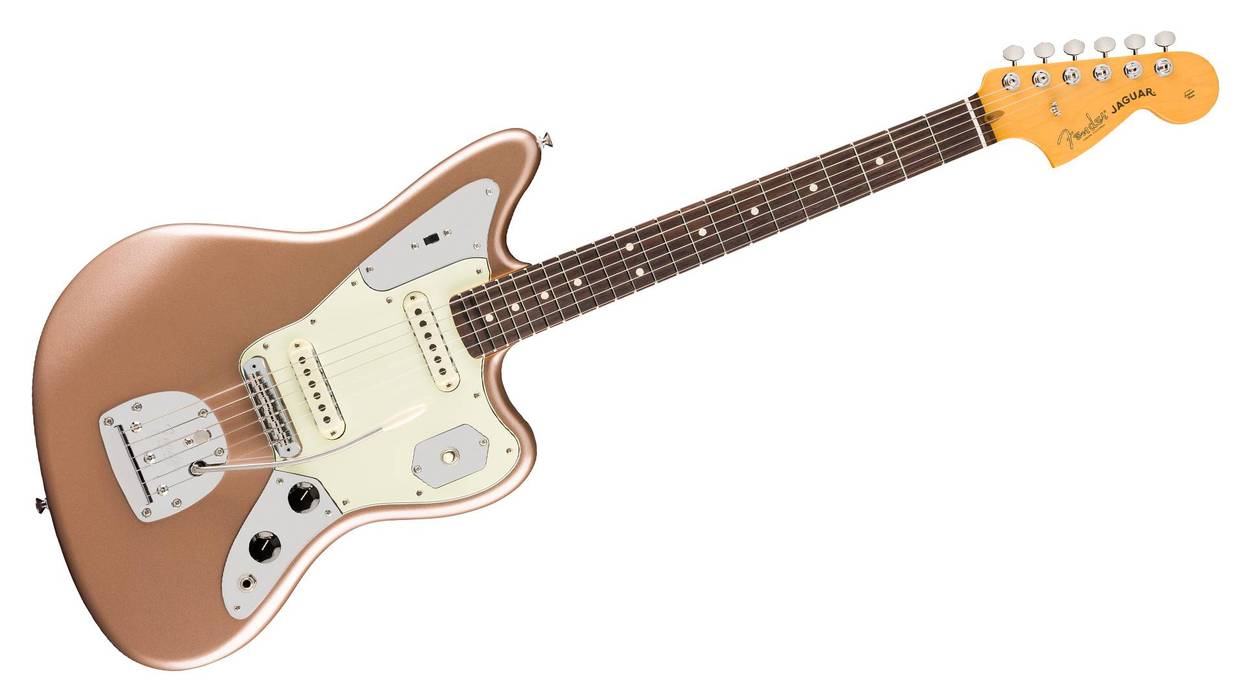
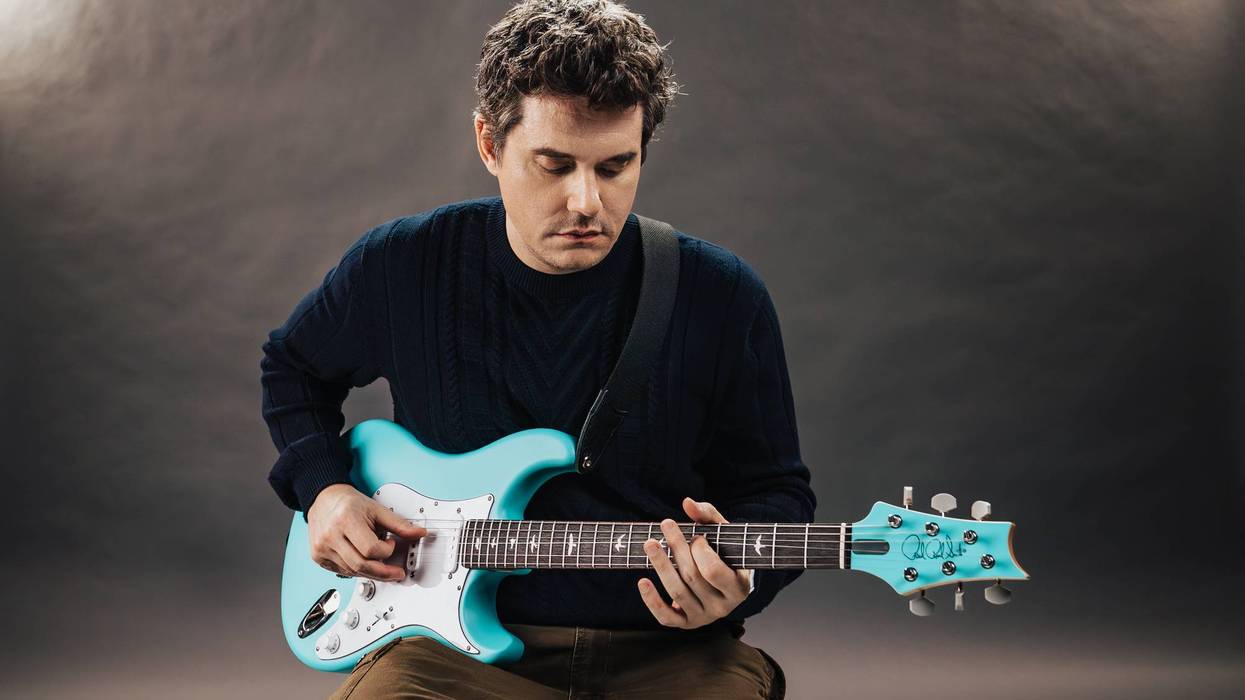

![Rig Rundown: Russian Circles’ Mike Sullivan [2025]](https://www.premierguitar.com/media-library/youtube.jpg?id=62303631&width=1245&height=700&quality=70&coordinates=0%2C0%2C0%2C0)
















![Rig Rundown: AFI [2025]](https://www.premierguitar.com/media-library/youtube.jpg?id=62064741&width=1245&height=700&quality=70&coordinates=0%2C0%2C0%2C0)











